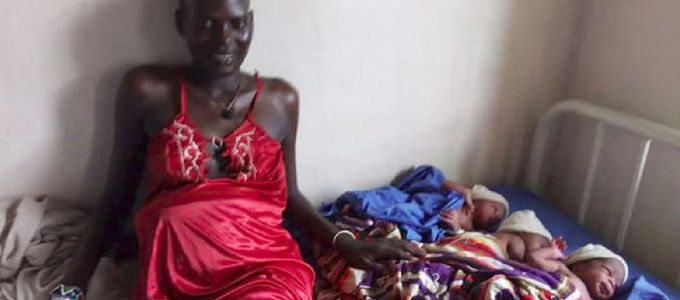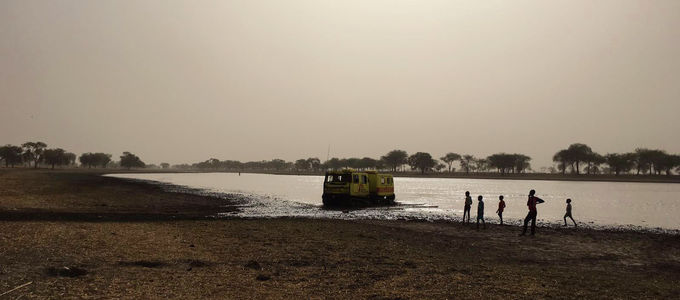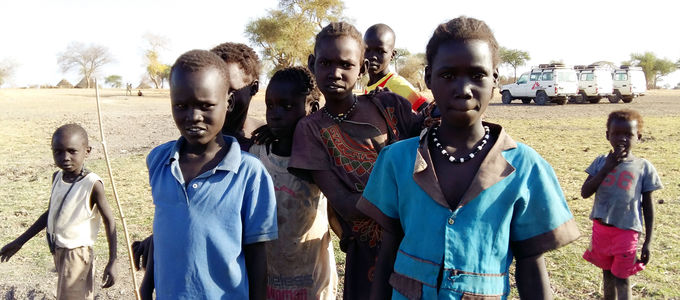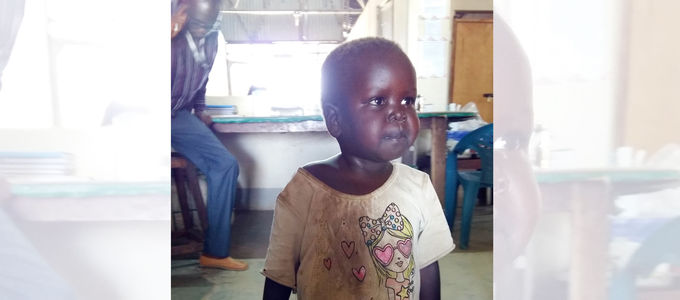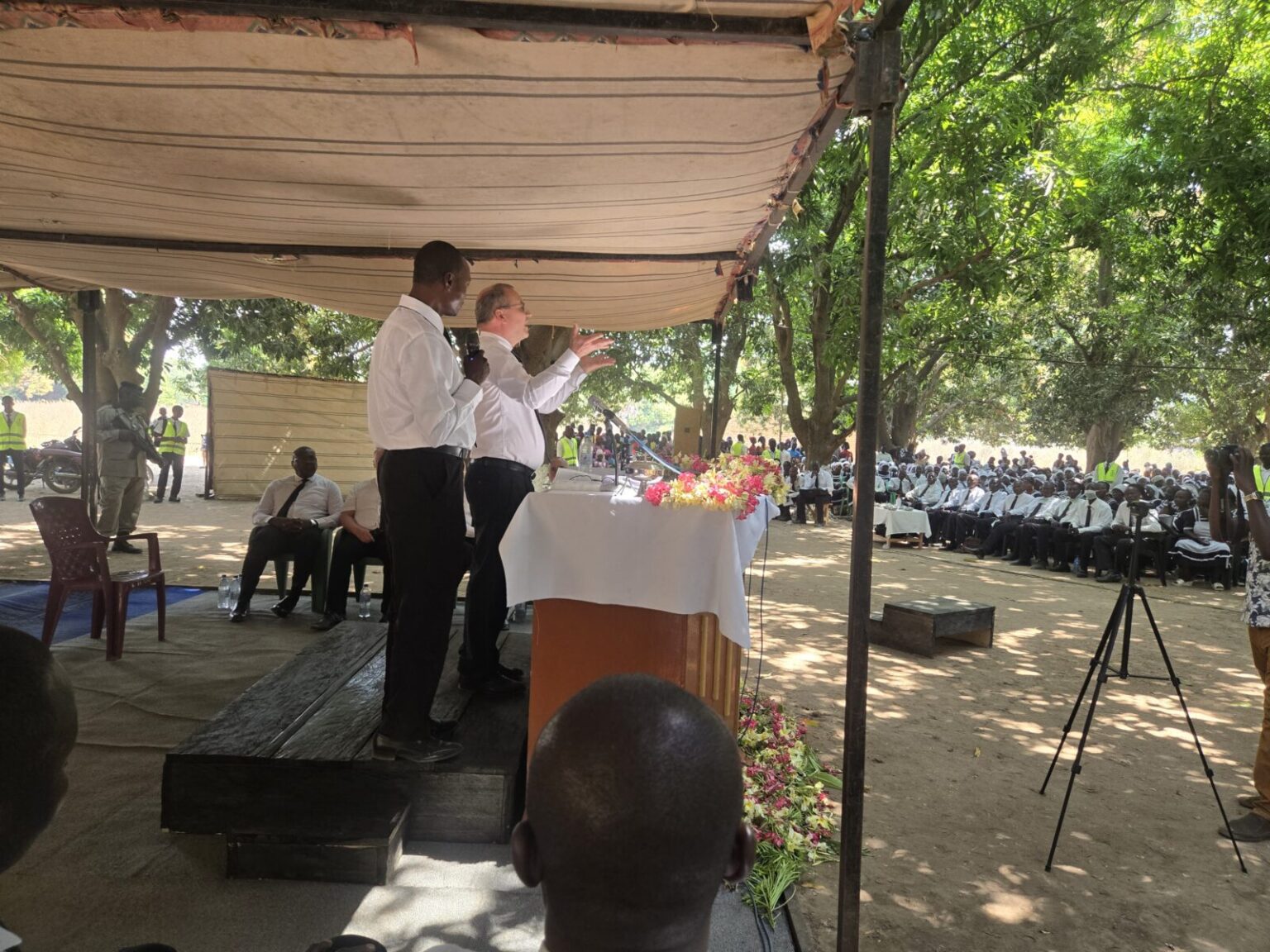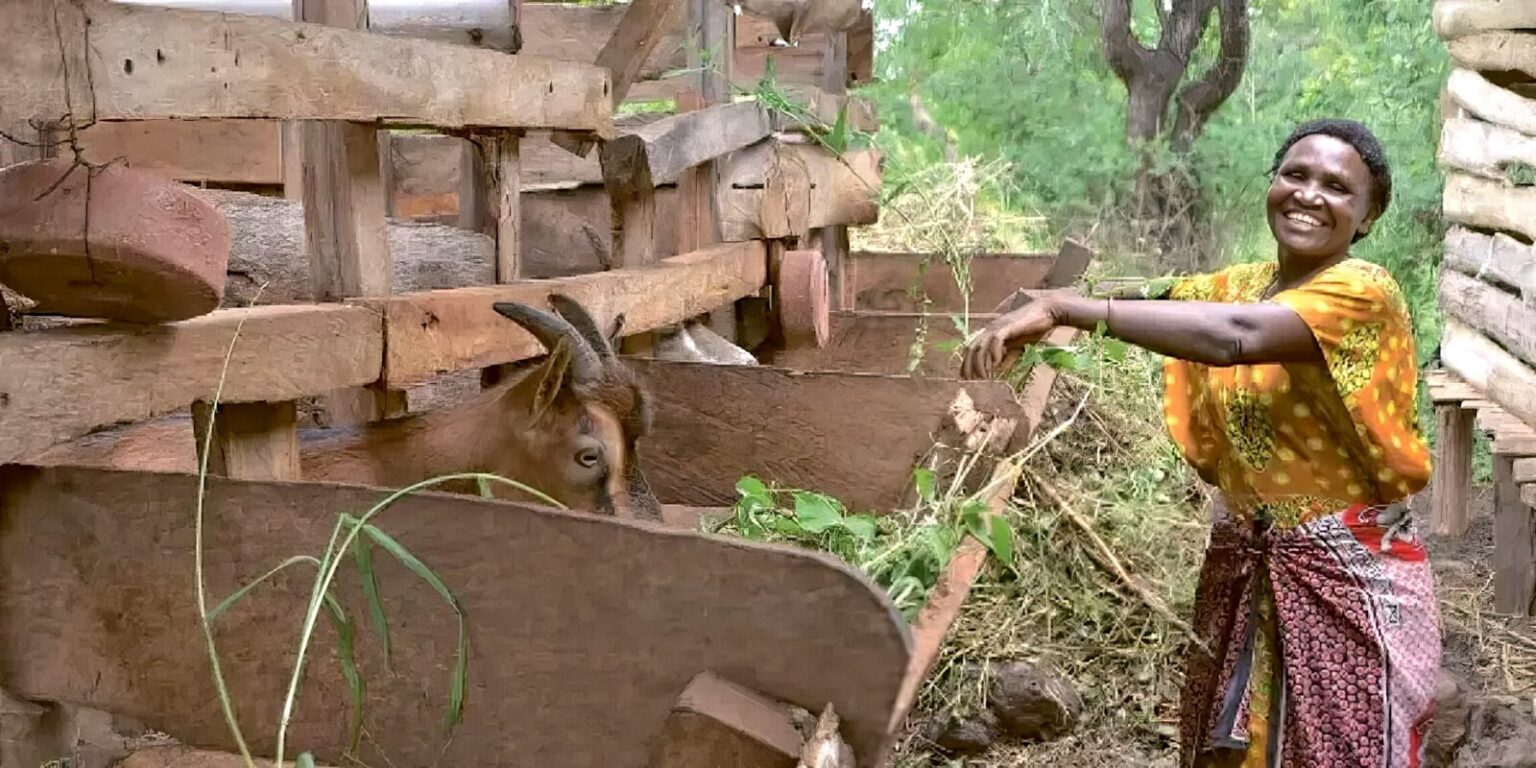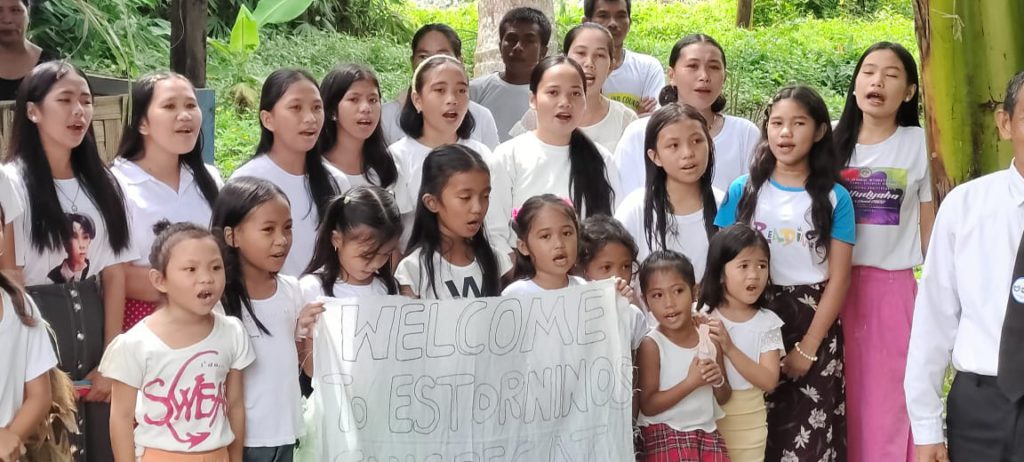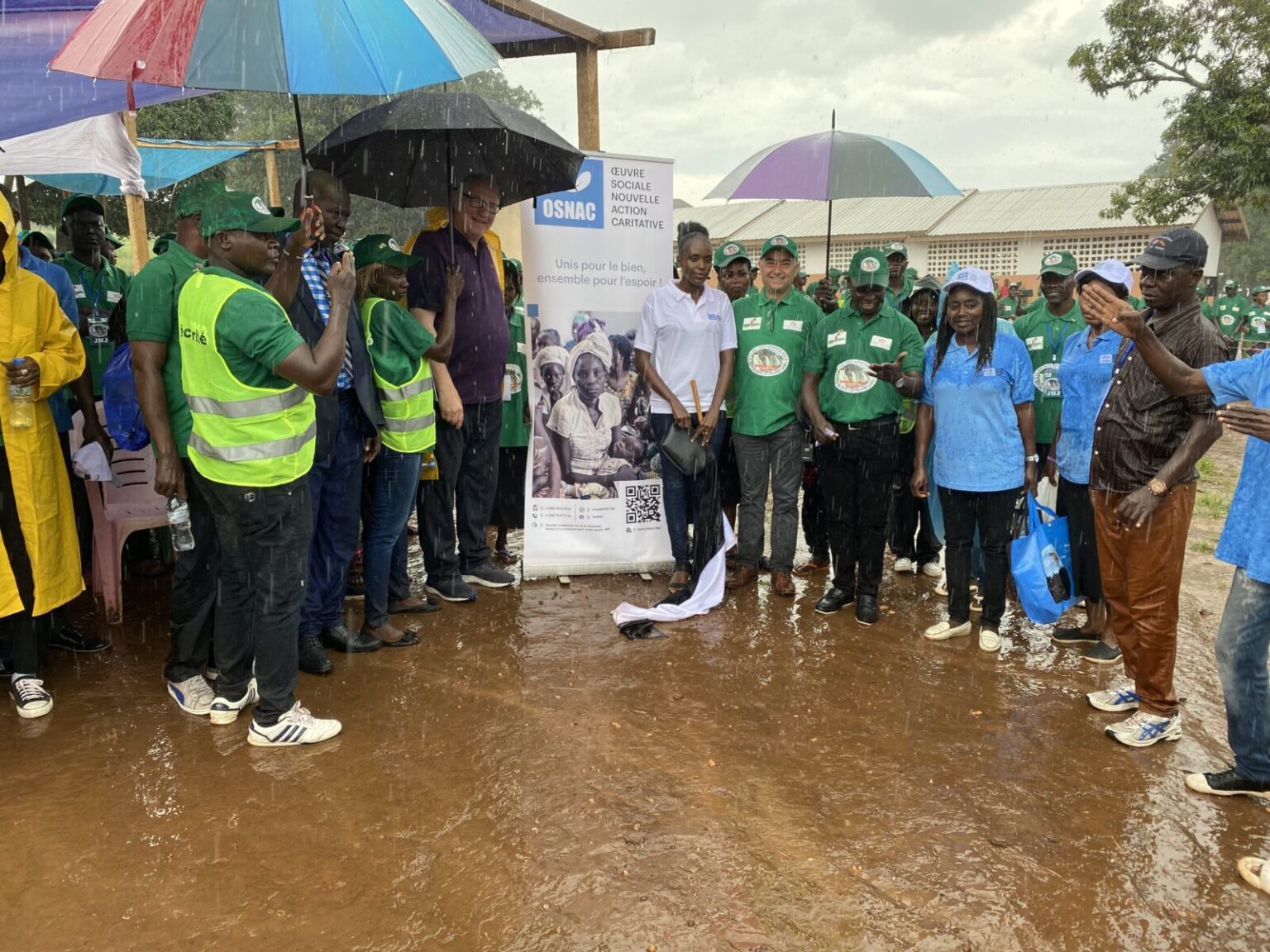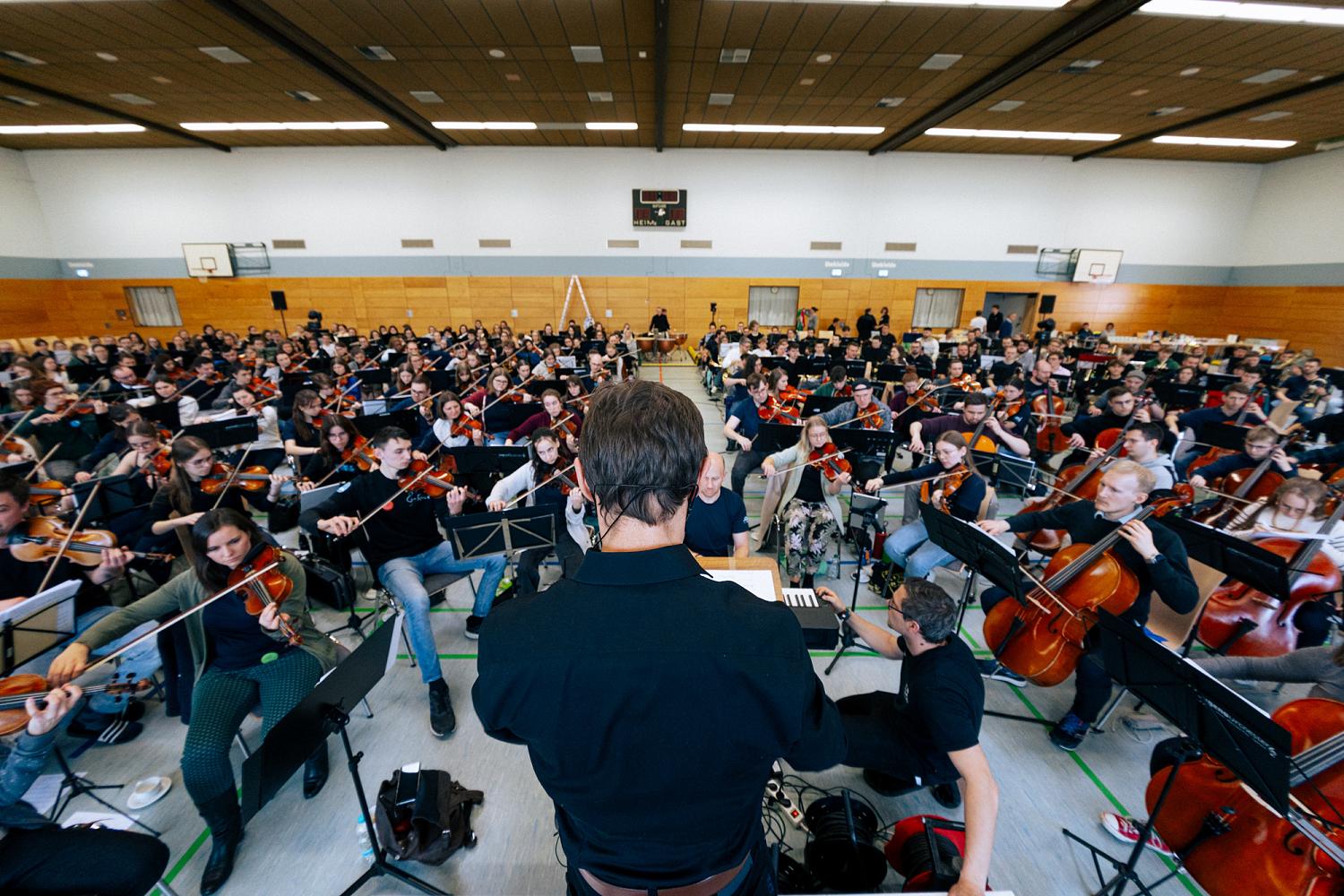

Angela’s walkie-talkie squawks: “A woman’s haemorrhaging. Can you come quickly?” It is midnight. She has just gone to bed. She jumps up and runs over.
Angela Schwarz has been in South Sudan for several weeks now, a country that declared its independence only in 2011. About 12.5 million people live here, many in extreme poverty. Life here means armed conflicts, epidemics, malaria, and AIDS.
For three months, Angela, a 55 year-old midwife from Switzerland, worked in a medical station in Agok run by Doctors without Borders (Médecins Sans Frontières, MSF).
In the middle of a civil war
“People who are bleeding profusely or who have gunshot wounds are received at the gate of the field camp and are then taken to the doctors and their assistants …” Angela says. Her tone is matter of fact as she talks about the daily drama experienced by hundreds of patients. The field camp—this is how MSF calls the bigger medical stations—is located in an area that has been fenced in twice. There is an inner area, in which the employees live, and a second area around this, in which the medical wards are located.
The camp is only ten kilometres as the crow flies from where the fighting is going on. Sometimes you hear gun shots, the MSF employee says. At night, security guards patrol around the camp.
The midwife is not alone
The maternity ward is located in a stone building with a corrugated iron roof. It is partially open on two sides. Inside there is only one large room. On the left-hand side are two beds on which women give birth. Beds? Well, more like a table with a bit of foam on it. And right beside them are beds for women who are about to give birth, or those who have already given birth. All in all there are 33 beds.
As the head midwife, Angela works eight to fourteen hours a day. Sometimes more, sometimes less, but usually more. On every shift she has four to six midwives who assist her. There are local midwives, trained people who either studied in Juba, the country’s capital, or in Nairobi in Kenya. This is a classical male profession in Africa. And then there are the local midwife assistants, who have been trained in a traditional way.
Urgent help needed
The women who come here are very tall—anywhere from 1.80 cm to 2 metres. At six to seven months pregnant they do not weigh more than 60 or 65 kilograms. There is not enough to eat. “Nothing grows here. There is sand everywhere. Everything is parched,” Angela says as she describes the area. Malnutrition is part of life here and seriously affects people’s health: there are many miscarriages.
Some of the women walk two to three days to come here. Their pregnancies are far advanced. “Many do not make it in time because they either leave too late or the child is in the wrong position or there are other complications. Most of the time it is the children who die,” Angela says.
No to herbal remedies
“I am very happy when they make it to hospital, when a mother comes to us, when we can treat malaria.” Ten to fifteen relatives must give their consent before a sick woman can go to hospital. And the relatives have to be convinced! If a mother-in-law says, “No!” and insists on helping with her herbal remedies, the woman will not be allowed to go to the MSF camp.
The people who work for MSF are aware of the circumstances and create incentives. “Women who are about to give birth receive three meals a day for about three days. This also applies to two or three family members who accompany them. In addition, the women who give birth receive a mosquito net as a gift. And when they come for their follow-up care they receive an extra mosquito net.”
Trained to handle emergencies
“You sit there every day and you pray, you help, you hope, and you resuscitate.” But there is also a great deal of joy. “When you have delivered a healthy child, when you have managed to stop massive blood loss, when you have saved a woman and her child, when they look at you with grateful eyes …” Angela, herself a mother of two and a grandmother of three, pauses and continues quietly, “… this is it, this is your salary.”
But Angela is also aware of the conflicts between the political parties, the ongoing border conflict, and that people are forced to convert to Islam. She is also aware of kidnapping, rape, and the economic interests in the nearby oil fields … She has been briefed and trained and knows what to do. She has a small bag packed and ready to go in case the field camp ever has to be evacuated.
Big wish
And in future? Angela wants to go to Bangladesh and help women there; help those who are being hunted down and raped. “I’d like to help people, show them that I’m there for them. I want to show local midwives what they can do when I’m not there.” And Angela would like to establish a home for children in South Sudan and maybe even a shelter for women. She wants to create something lasting. It is a big dream, a strong wish.
Where are her limits? What makes her shrink back? She thinks for a moment. “I’ve never felt fear. Never! Not once. I can feel God carrying me. And I’m sure that He decides what is best for me.”
Doctors without borders in South Sudan
Médecins Sans Frontières/Doctors without Borders (MSF) is an international humanitarian organisation. It provides medical care for people who are affected by armed conflicts, epidemics, and natural disasters and who have no access to health care. MSF was established in 1971 and consists of 24 country associations. It is a non-profit, self-governing organisation, whose actions are guided by medical ethics and the principles of neutrality and impartiality.
MSF has been working in South Sudan since 1996. It runs medical stations in Agok and Mayom. There are a total of 411 workers, 38 of these are international workers. The project costs amount to 16 million US dollars annually. “South Sudan is continuing to struggle with the aftermath of the civil war which led to its independence in 2011. There were 1.8 million displaced people by the end of 2016,” MSF writes. In 2016, more than 7,600 patients were admitted and treated at the hospital in Agok. The maternity ward, which is open 24 hours a day, assisted with more than 1,600 deliveries in 2016. Over 90 were cesareans. Assistants treated more than 915,000 people on an outpatient basis, of which 295,000 were malaria patients.







